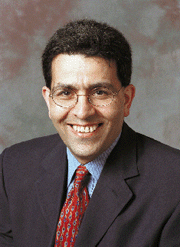



P.A. Shamlou - Editor-in-Chief
Parviz A. Shamlou is Senior Engineering Consultant at Eli Lilly and Co., Indianapolis, U.S.A. Until recently he was a full Professor and Deputy Head of the Department of Biochemical Engineering at University College London. His research interests have been supported by over 20 separate grants and have resulted in more than 130 publications, including one authored book, one edited book, many refereed journal articles, chapters and other forms of dissemination. Parviz's research is at the interface between new life sciences and bioprocessing, with an emphasis on the creation of new approaches based on miniaturization to aid discovery, and to allow prediction of full-scale bioprocessing of advanced biologics, including therapeutic genes, antibodies and cellular systems. Recently, his research has been concerned with the biophysical characterization of non-viral drug delivery systems, the design of miniaturized techniques for fermentation and cell-culturing operations and the bioprocessing engineering issues related to manufacturing of advanced vaccines and tissue-engineered products. "Major and continuing advances in genomics, proteomics and bioinformatics, combined with significant progress in microelectronics and miniaturization, are leading the way towards greater insight into the molecular basis of diseases that have yet to be treated effectively," says Parviz. "It is expected that in the next decade, and beyond, these advances will lead to an exponential increase in the number of new drug molecules, as well as techniques for the treatment of life-threatening and life-limiting diseases. The next few years will be dominated by an increase in the number of new therapeutic proteins and antibodies. Nearly 1000 such drugs are in development at present, and 250 are at different clinical stages. Biologics now make up nearly 5% (equivalent to US$16 billion) of world-wide healthcare sales of all drugs, and in the next 3 years, this is expected to reach US$30 billion." "The first DNA vaccine is likely to reach the market in the next 5 years and gene therapy products are expected to follow, perhaps in the next decade. Areas such as tissue engineering, stem-cell therapeutics, germ-line therapy and regenerative medicines are expected to become increasingly important in the treatment of disease and management of healthcare. These approaches provide enormous opportunities and major new challenges, as the new drugs become ever more complex in their physical structure and biological function. In such circumstances, a main driver for success is the ability to pull together different disciplines including those at the interface of life sciences and engineering. Biotechnology and Applied Biochemistry is uniquely placed to provide an international forum for dissemination of information and discussion by researchers working across the many subject groups."
|


